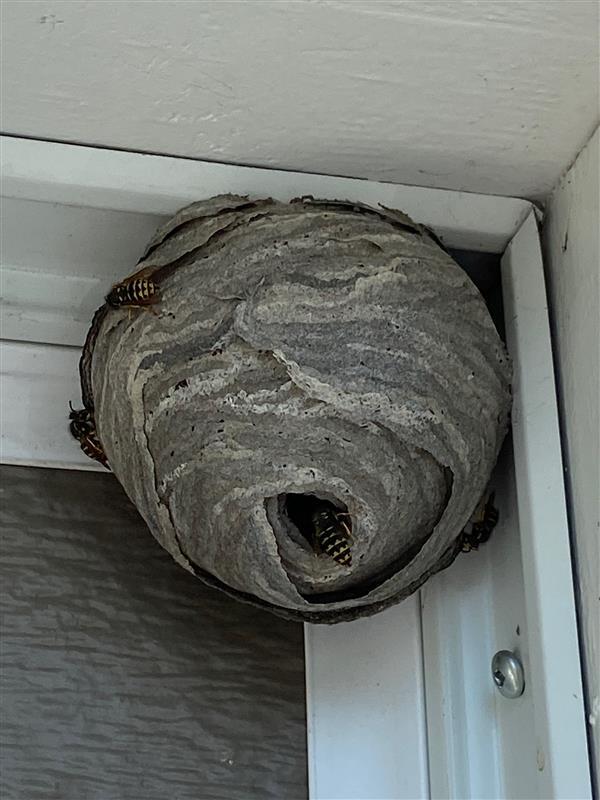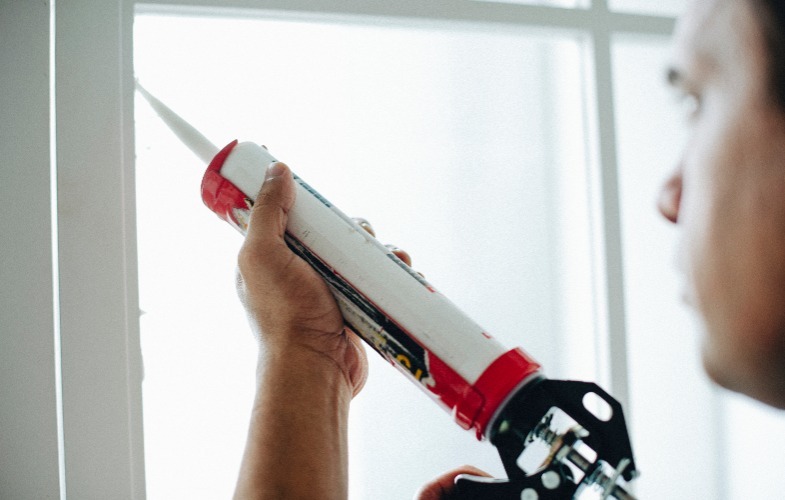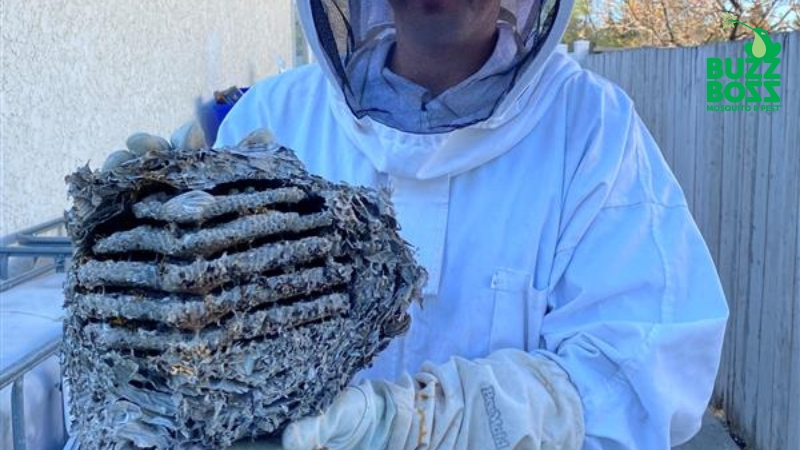Practical Steps to Prevent Wasps and Hornets from Nesting
Reading time: 6 minutesWasps and hornets are widely considered difficult pests to deal with. They can be extremely dangerous when their nests are allowed to grow. These insects generally build their nests in high places, such as tall trees and buildings, although some species prefer ground-based nests.
Because of this, it is common for home and business owners to find wasp and hornet nests attached to the outside of their property. Getting rid of these nests can be tricky, so ideally, property owners should take steps to prevent these pests from building a nest at all.
Making your property unwelcoming to wasps and hornets is a significant first step because they typically move on to another area when they cannot find a suitable place to build a nest.

Nest Removal
Under Attack? Buzz Boss has your back!
Buzz Boss provides emergency service to take back your outdoor space from the flying fury of hornets and wasps. We’ll remove the nest and solve the problem. Guaranteed!
Wasp removal is often a tedious task that may result in bites or stings or even damage to your home and surrounding structures if not removed carefully.
If you’ve discovered a wasp nest on your property- the best thing to do is leave it to the professionals! Our fully licensed and trained team have dealing with these pesky pests down to a science; so you can get back to enjoying your outdoor space.
How to Stop Wasps From Nesting
If you're a property owner, there are a few things you can do to prevent wasps and hornets from building nests on your property. Try out these tips.
1. Remove Any Food
One of the most common ways to prevent a pest infestation is to remove any food source. Without access to food, pests are far less likely to attempt to nest near your home. This may lead you to ask: what do wasps eat?
Nearly all wasps and hornets living in this part of Canada are predatory. That is, they attack and eat other insects. To prevent them from finding a food source, it is necessary to eliminate as many insects around the property as possible.
Near the end of the summer, wasps will often turn to sugar-filled foods as part of their diet, so keeping sweet beverages, candy, and fruit covered or sealed is a proactive step you can take to limit these pests.
Additionally, you’ll want to eliminate food waste and trash that provide multiple insects with sustenance and shelter. Once the primary food source has been eliminated, you should see a reduction in the overall amount of insects around the property.
Of course, it is next to impossible to eliminate all insects from a property without using pest control services. If your property is struggling with a wasp or hornet infestation, hiring a pest control company to eliminate and prevent other insects from colonizing is the best way to defend your property.
2. Sealing Entry Points
To make a nest inside a structure, hornets and wasps must have an access point. If you already see evidence of these pests on your property, take the time to watch them and determine how they are getting access to the structure of the building.
Property owners often find small holes in soffits, cracks along window frames and doors, or areas with termite damage where the wasps can access the property. After identifying these areas, your best bet is sealing them off. Wood filler and spray foam insulation are the most common products to seal cracks outside a home.
Commercial carpenter bee filler is another option when searching for a suitable sealant. These products are sold at most hardware stores and tend to look like spray foam. While they may work temporarily, finding a more permanent solution is essential. These products will work to repel carpenter bees, but wasps have been known to dig through the foam to create a nest.
Once you have sealed off the areas that the wasps were using to gain access, replace everything that was damaged by the pests. After this, regularly check the sites where you have previously seen nests. Without proper attention, wasps may try to return to a spot they’ve used in the past if they escaped the initial removal.

3. Use Plants That Repel Pests Outside the Home
Generally, strong scents are an excellent plant attribute to repel a wide variety of insects. Consider planting around walkways and other areas near your home or business with plants such as:
- Spearmint
- Onion (any type)
- Lemongrass
- Peppermint
- Basil
- Red geranium
- Citronella
- Cucumber
Each of these plants contains chemicals that repel wasps and a variety of other insects. The benefits are two-fold, as other insects will leave, ridding your winged pests of a food source while the smell remains unpleasant to wasps and hornets.
4. Pick Up Trash
Any kind of debris can act as a home for insects. Even if there is no food waste in the trash, debris can collect water and other organic material, attracting smaller bugs. It’s best to avoid contributing to breeding areas for insects and hiding spots for wasps.
Many insects, including mosquitos, can lay their eggs in as little as a tablespoon of standing water. That means that even a small amount of trash can quickly become a breeding ground for insects that mainly function as a food source for wasps.
A large amount of debris can provide protection and cover for wasps as they make their nests. Just as these pests look for cracks and holes in a structure, they will also look for nooks and crannies in junkyards. In areas with a large amount of trash, it can become challenging to determine where the nest is located to eliminate it.
5. Cover and Fill Holes in the Ground
Some wasp species prefer to make their nest in the ground. In these cases, the insects look for places where the soil has already been disturbed. Specifically, they are most attracted to areas where the land already has holes or pockets.
In cases where other insects made these holes, it is not uncommon for a colony of wasps to kill the former occupants of a home before moving in themselves. In rarer cases, wasp colonies fight and kill other wasps for territory.
Go through your yard regularly and fill in or patch holes where wasps may want to move in. Be especially careful in areas along concrete pathways and porches. A rainstorm can cause the ground to come away from the edge of these areas, creating a perfect home for wasps who will be attracted to the hard surface of the pathway or deck and the soft ground underneath.
Ground wasp and hornet colonies are some of the most dangerous nests, especially if you have pets or children. Since they are difficult to spot, many people or animals don't realize they’re present until they accidentally step on one.
6. Professional Pest Control
A colony of hornets or a nest of wasps is something that only some home and business owners are equipped to deal with on their own. While taking steps to make your property as unattractive as possible to these pests is essential, it is also a good idea to know when to call a professional.
Unfortunately, dozens of people and hundreds of pets die yearly when wasps or hornets attack them. Even a single sting from one of these flying insects can be excruciating. For your safety and the safety of your loved ones or employees, if you see a nest on your property, call in a professional pest control service for your and your loved ones or employees.

Buzz Boss Treatments Stop Wasps in Their Tracks
Eliminating wasps and hornets before they become a problem is essential to excellent pest care, but we can also help if you ever find a nest near your home. At Buzz Boss, our staff has years of experience helping home and business owners prevent and eliminate wasps, hornets, and other pests.
Our trained technicians work with homeowners to build defences against these winged invaders daily. Do not risk trying to get rid of these dangerous insects yourself. Get in touch today.

